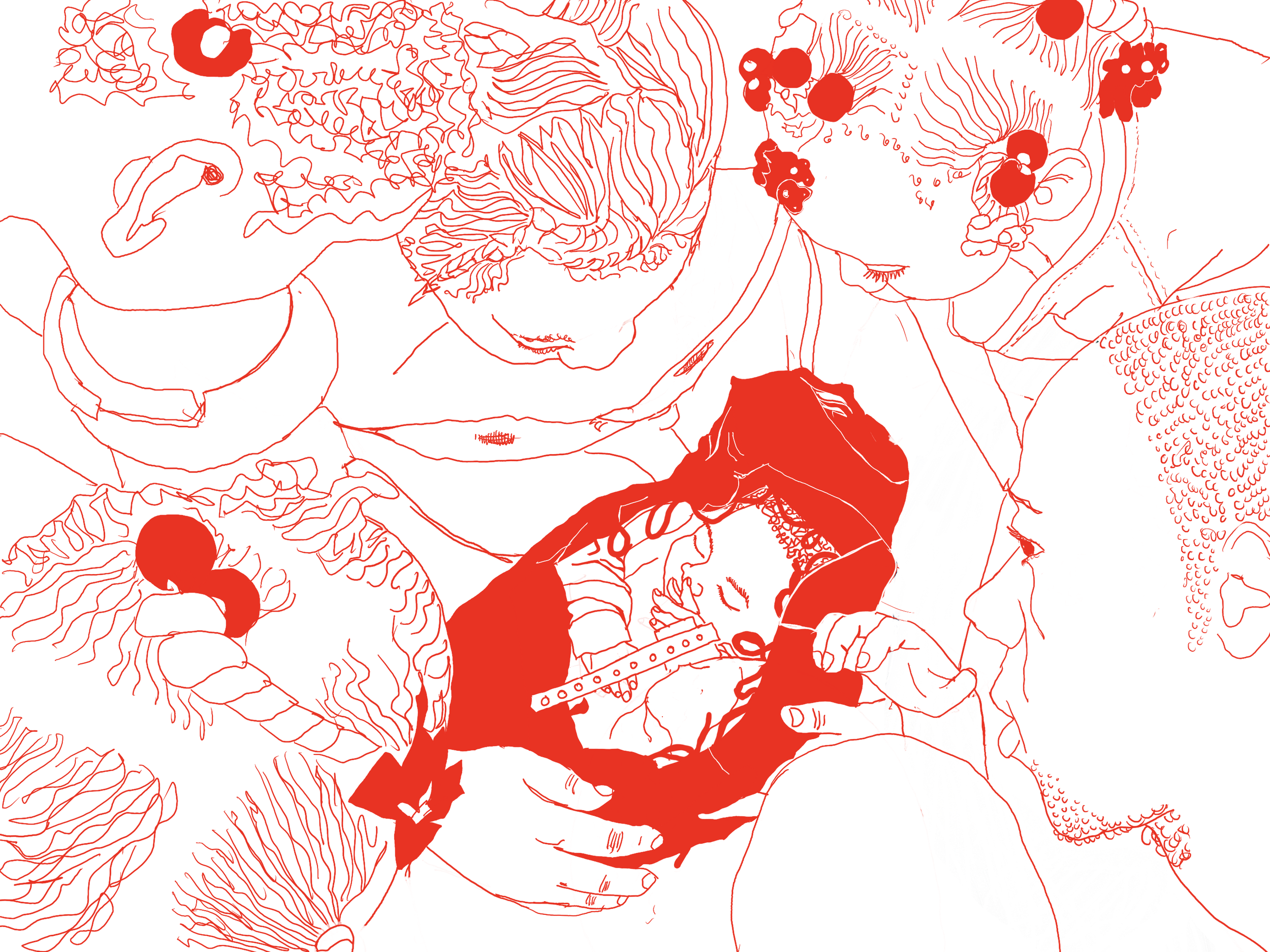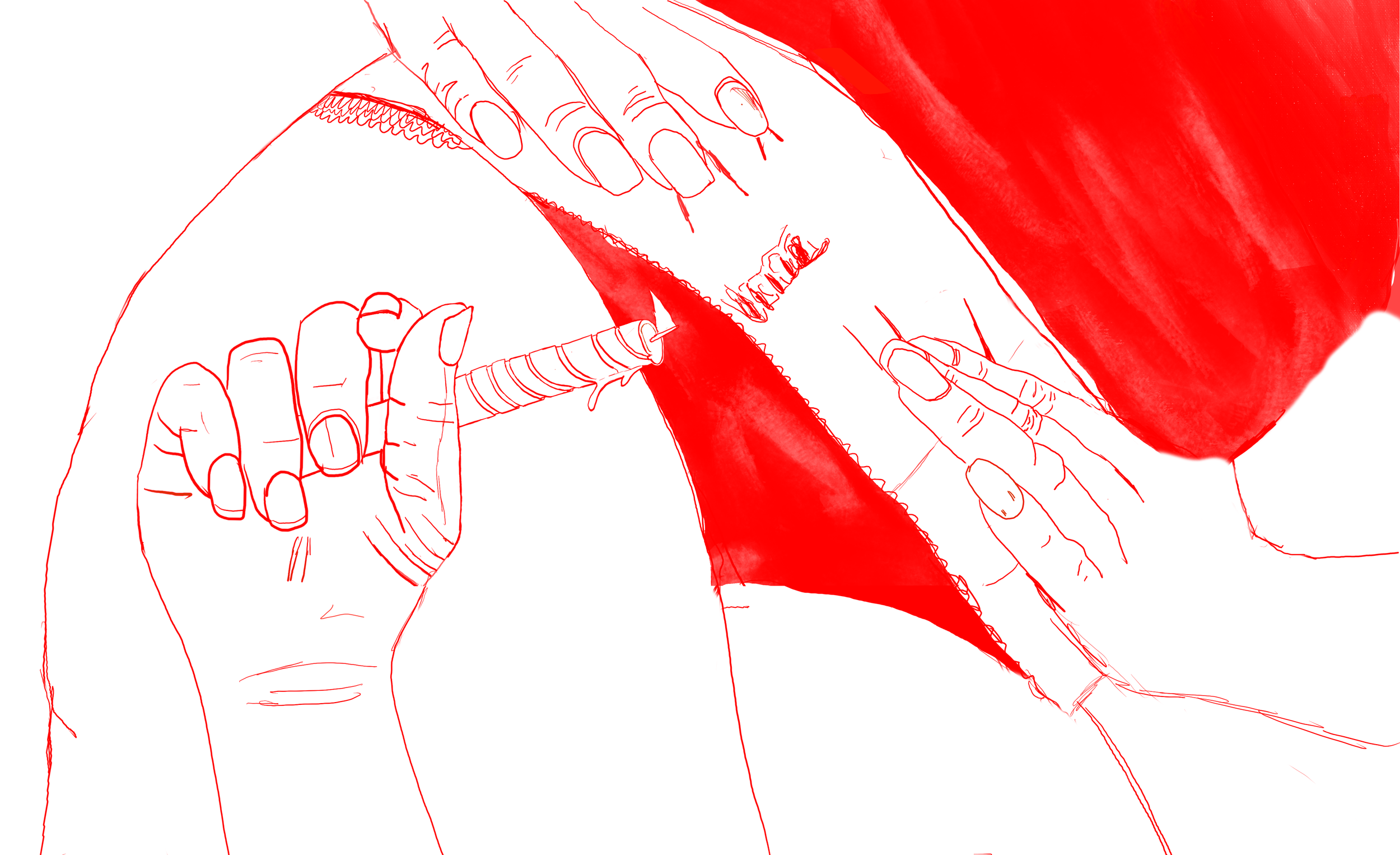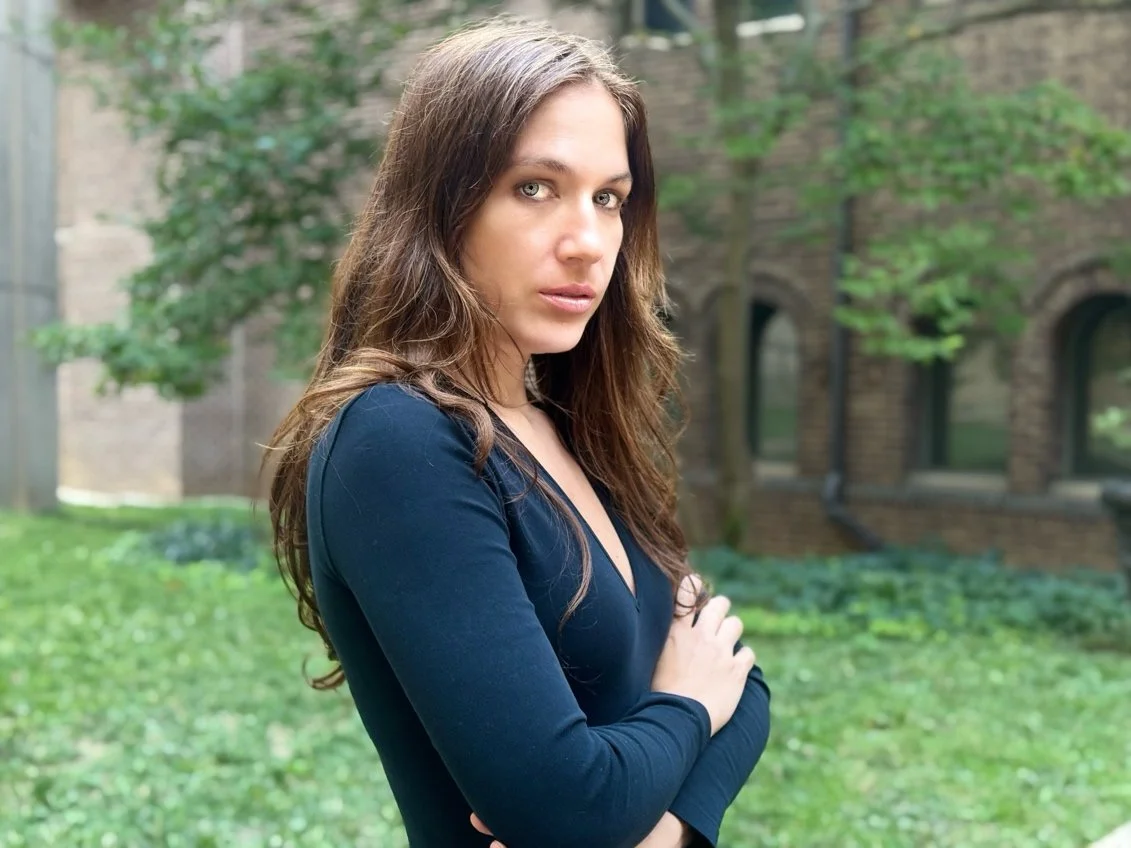
and our bodies become cosmic portals and we must guard them just as we must move through them
and our bodies become cosmic portals and we must guard them just as we must move through them
Alissa Jordan, PhD
I am a cultural and medical anthropologist at the University of Pennsylvania, where I serve as Associate Director of the Center for Experimental Ethnography and I teach in the Department of Anthropology with affiliated faculty appointments in Gender, Sexuality, and Women's Studies and the Graduate School of Education. I received my PhD from the University of Florida, and I have held appointments as the Inagural Postdoctoral fellow in Experimental Ethnography and the University of Pennsylvania, as well as a Melvin Ember Research Fellow at Yale University.
My research focuses on healing, embodiment, and reproductive justice for Black birthing people in Haiti and globally. I use collaborative ethnographic filmmaking, audio production, illustration, and participatory activism to explore the alternative worlds that Black women create by caring for their bodies in their own homes and spaces.
My first book, Atlas of Nanm: Bodily Openings and Encounters in Haiti is under contract with the University of Pennsylvania Press, and my work has appeared in Medical Anthropology Quarterly and the American Anthropologist.
Materials
Contact
3260 South Street
336 Penn Museum
Department of Anthropology
Center for Experimental Ethnography
almjorda@sas.upenn.edu
Current Works
-
Under contract with University of Pennsylvania Press
Atlas of Nanm: Bodily Openings and Encounters in Haiti is an ethnography of health risk and healing among women healers in Arcahaie, Haiti, rooted in the transnational Black feminist tradition. Each chapter of the book considers how women (trans-inclusive) care for and manage a physical site of "opening" on their bodies. Among all the residents of imperiled Haitian communities, women and infants are considered the most likely to be harmed by structural risks, evidenced in the high maternal and infant mortality rates in the nation. Instead of framing themselves as victims of these risks, many women call upon their disproportionately high experiences of illness and loss as a source of expertise into bodies and energies, which are animated by a life-energy known as “nanm.” I argue that women’s experiences of diagnosing, overcoming, and managing the loss of their own nanm, and the intrusion of other nanm, lead them to become theorists of bodies more broadly. These mothers, healers, and laywomen wield their lived experience as an authoritative source of insight into the way bodies should interact with one another, into decisions about whose bodies demand care, and how or if social injuries can be meaningfully healed through collective bodily practice. Organizing these revelations according to the sites of mouths, uteruses, eyes, skin, and dreams, this book is envisioned as a multimedia atlas of life force, of nanm, as it moves into and out of women’s bodies at corporeal frontiers. I tell this story using ethnographic prose and theoretical interludes that are interwoven with “collaborative illustrations”, graphic concoctions compiled from photographs, diagrams, and medicines made by and with interlocutors.
-
Medical Anthropology Quarterly
What does it mean that hospitals in Haiti have become widespread sites of “kidnapping” for mothers and babies? In at least 46 countries, including Haiti, indebted patients are extralegally held prisoner in hospitals until family members, kin, outside groups, or charities pay their outstanding bills. The majority of those detained globally are women following complicated births. This article introduces and situates the global problem of “hospital detention” as it is practiced in Haiti, tying it to transnational carceral architectures that target Black reproduction in global health. Drawing from a trauma-informed collaborative storytelling workshop in the North of Haiti, I share Senisha and Mari’s experiences of detention, which reveal the practice as continuous with other forms of coercion, neglect, and violence they face in seeking safe births, and highlighting the communal care, refusals, and acts of self-liberation that oppose these oppressions.
-
An essay accompanied by video, audio, and artwork that was the outcome of the “Lopital Pa Prizon” Reproductive-Justice Storytelling Workshop held in Okap, Ayiti, in June 2022. The workshop brought together 11 women survivors of hospital detention (and their family members) with Haitian artist Danipy Georges, anthropologist Alissa Jordan, Haitian midwife “Ani,”[1] Haitian human rights organizer Jean Denis Aureleus, and an experimental Haitian documentary team, including Maredel Pierre-Louis and Robensor Exantus. Following the end of the closed workshop, the film team invited mothers to share their experiences on film before going home. Although it was late, and many were tired, 10 of the 11 women waited for more than two hours for a chance to speak and the story reflects on what they shared, especially Geraldine’s insistence that—for her—justice requires “shame”. Speaking on camera, she explained, could make doctors and administrators and international NGO boards and obstetricians and hospital guards “feel shame” [santi wont]. What does an engaged ethnographic praxis look like at this kind of affective frontier?

events
events
October 10
N’ap Boule
Discussant for film screening of “N’ap Boule”: On quest for maternal healthcare in Haiti.
Alliance Française de Philadelphie
October 22
Kislak Center
Philadelphia, PA
Pedagogies of Presence: Archiving Philadelphia on Film
A conference co-organized by Henning Engelke (Kunstuniversität Linz) and Alissa Jordan (University of Pennsylvania)
September 22
438 Penn Museum
Kinship
Departmental colloquium roundtable with Andrew Carruthers, Rachel Watkins, and Alissa Jordan
November 13
Thomas Jefferson University
Philadelphia, PA
Listening to a Body
A aural/oral scholarship workshop teaching active listening and collaborative storytelling as ethnographic methods for medical professions.
Digital Publications
Reckoning and Repair is part multimedia counter-archive, part laboratory, for telling stories and listening to stories in cities. Currently in its third iteration, the archive traces stories of resistance to (and repair from) the enduring and specific legacies of exclusion and withholding and erasure that haunt our urban landscapes.
Through immersive oral histories and collaborative storytelling, student scholars, activists, and creatives illuminate the slow, difficult, yet vital work of accountability and healing in haunted worlds. The project is directed by Dr. Alissa Jordan at the Center for Experimental Ethnography at the University of Pennsylvania. Audio stories are available by subscribing to the Reckoning and Repair podcast.
on Apple Podcasts, Spotify, and all major podcasting platforms
-
How do artists and organizers in Philadelphia confront the troubling histories of Empire in their midst? Is it even possible for colonially-based art institutions to meaningfully reckon with their own exclusionary histories? What models of reckoning and repair already exist in Philadelphia's art worlds? In this experimental oral history series, contemporary artists, curators, and community organizations tell stories of the need for reckoning and the im/possibilities of repair in Philly. This Center for Experimental Ethnography production is engaged with the Spring 2023 exhibit "Rising Sun-Artists in an Uncertain America", an African American Museum of Philadelphia (AAMP) and Pennsylvania Academy of Fine Arts (PAFA) production.
-
How did Argentine artists enact resistance and catalyze change during the violent repression of El Proceso dictatorship? How can these creative responses inform struggles against rising fascism, white supremacy, and authoritarian assaults on democracy? What role do embodied practices of public art, performance, and protest play in shaping collective memory?
Reckoning and Repair Part II presents oral histories with groundbreaking art activists in Buenos Aires, originally recorded in Spanish and condensed into English by Anya Miller and interpretive speakers. This season was produced as part of the "Art and Power: In Conversation with Creative Visionaries in Argentina" course directed by Dr. Alissa Jordan at the University of Pennsylvania.
-
How do the deep-rooted legacies of medical racism, experimentation, and reproductive injustice continue to materialize in Philadelphia, the birthplace of American obstetrics? What grassroots care models and activist traditions have communities developed to resist and heal from this slow violence, and what situated knowledges emerge from their embodied practices? And finally—-How might centering the stories and expertise of birth-workers, organizers, and survivors help us imagine and enact more liberatory reproductive futures?
Reckoning and Repair Part 3 explores these questions through immersive oral histories and multimedia figurations that engage with reproductive justice in Philly, most broadly construed. This season was recorded, written, and produced as part of the "Reproduction, Justice, and Care: Listening in Philly" course co-taught by Dr. Alissa Jordan and Dr. Daniela Brissett at the University of Pennsylvania.
Using a transnational feminist lens, this platform draws together on commentaries and first-person storytelling by Haitian mothers, a Haitian human rights organizer, a senior AP health journalist, and an activist nurse, as well as research into the practice of hospital detention and other reproductive injustices. The stories attend closely to the everyday strategies of resistance that women and families wield against the practice. The platform connects these stories to broader conversations on birth justice and racial capitalism, highlighting how women across the world resist the hospital-prisons efforts to break down and then refigure their reproductive selves and kin relationships through capital.
on Apple Podcasts, Spotify, and all major podcasting platforms


